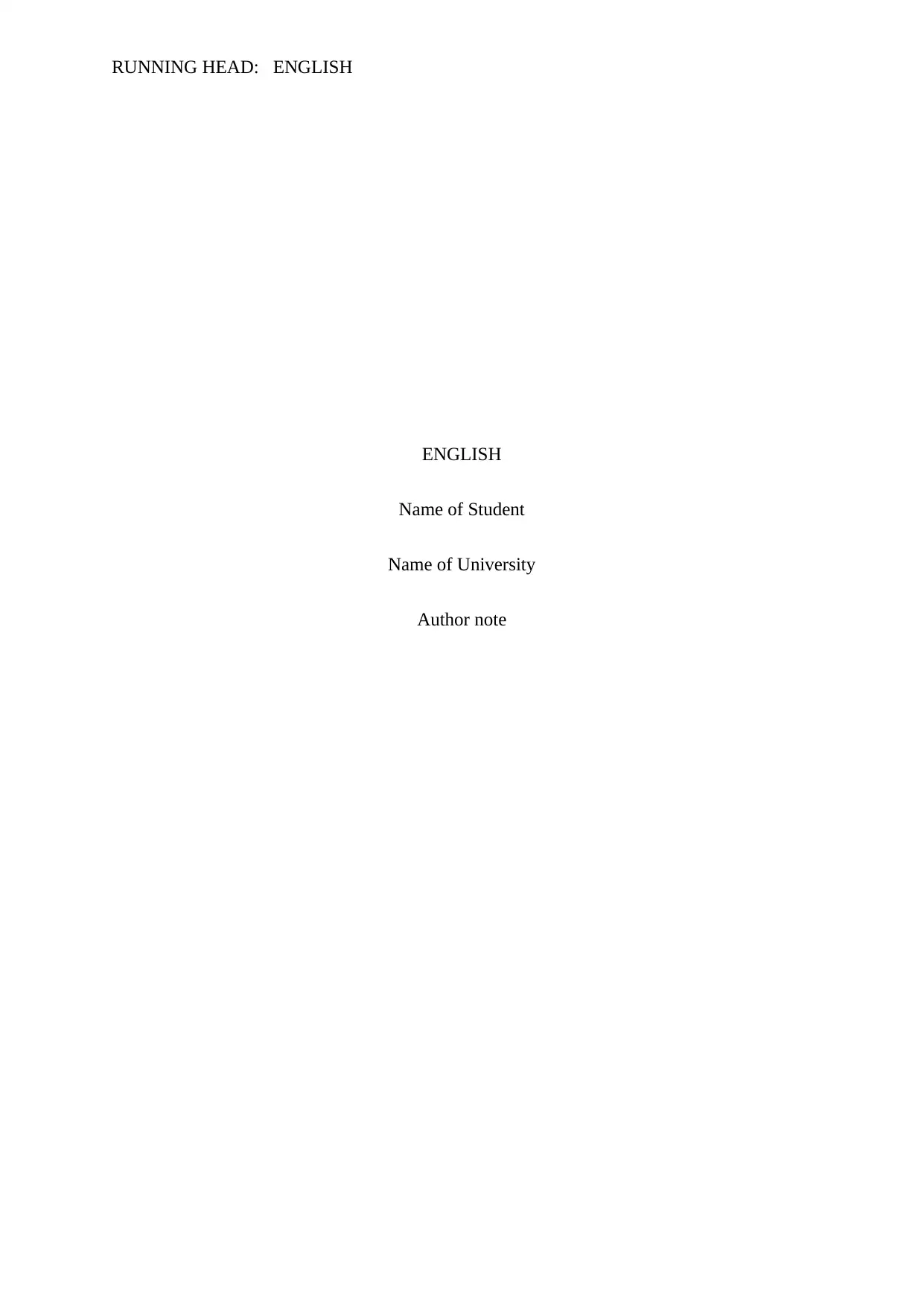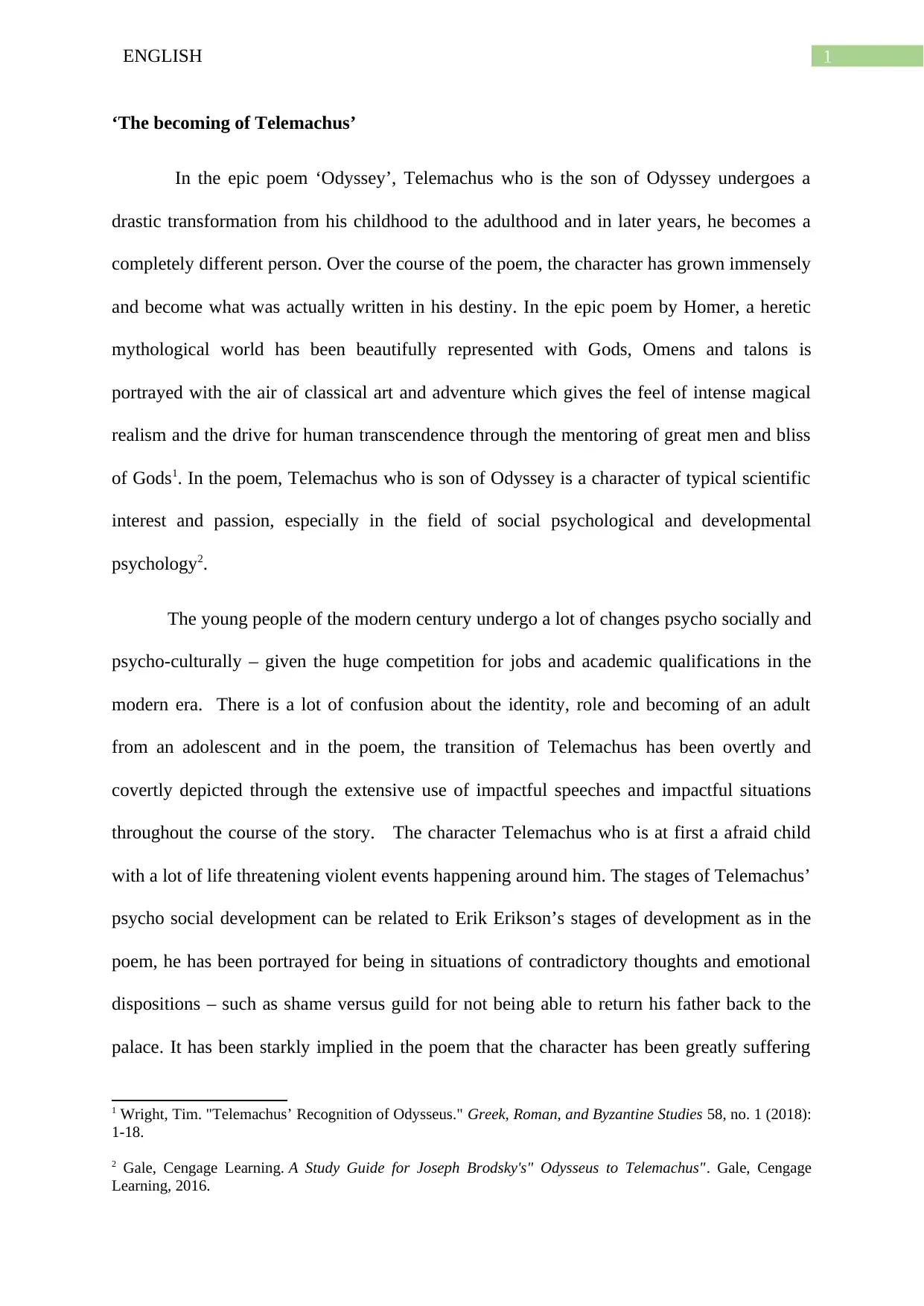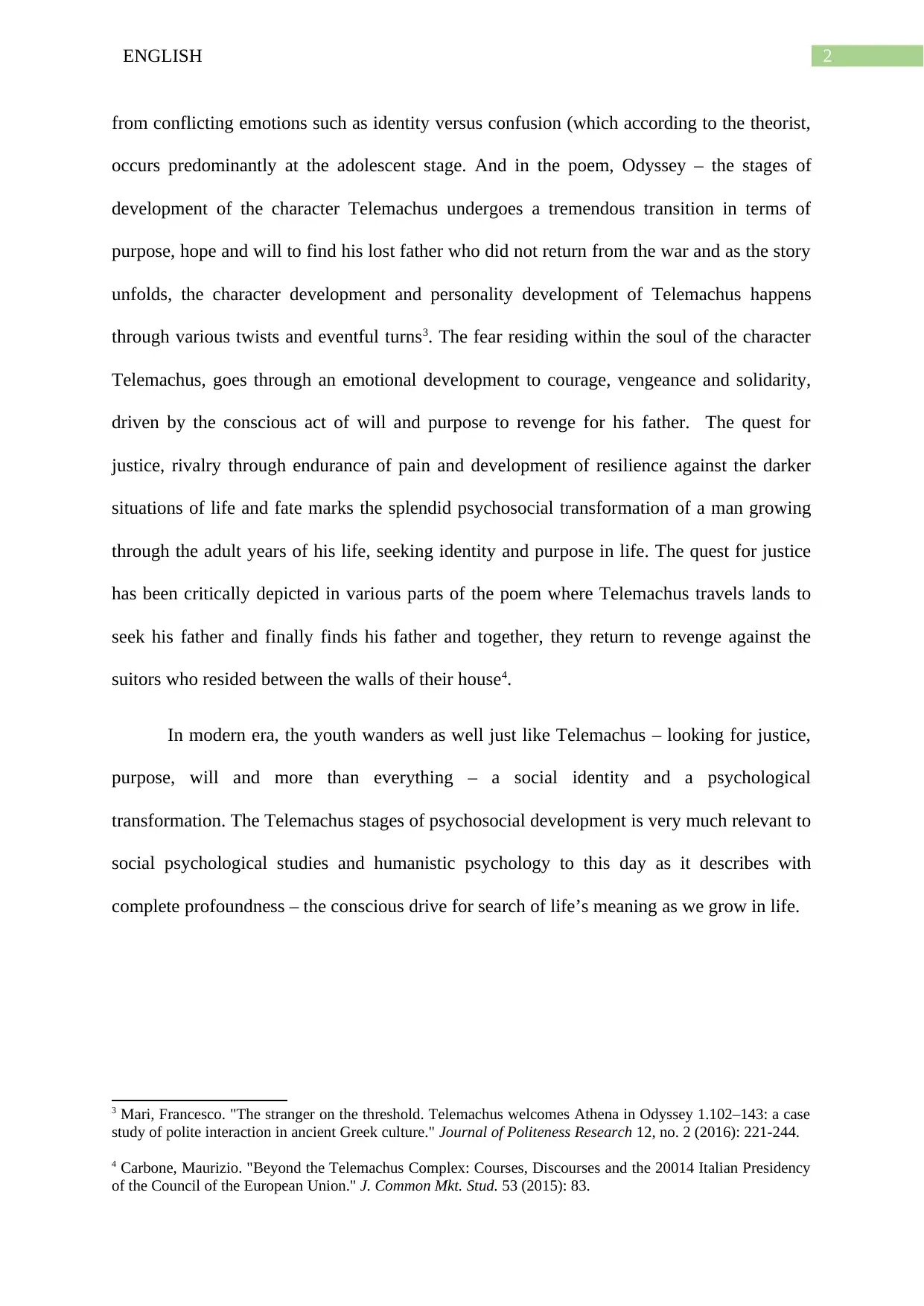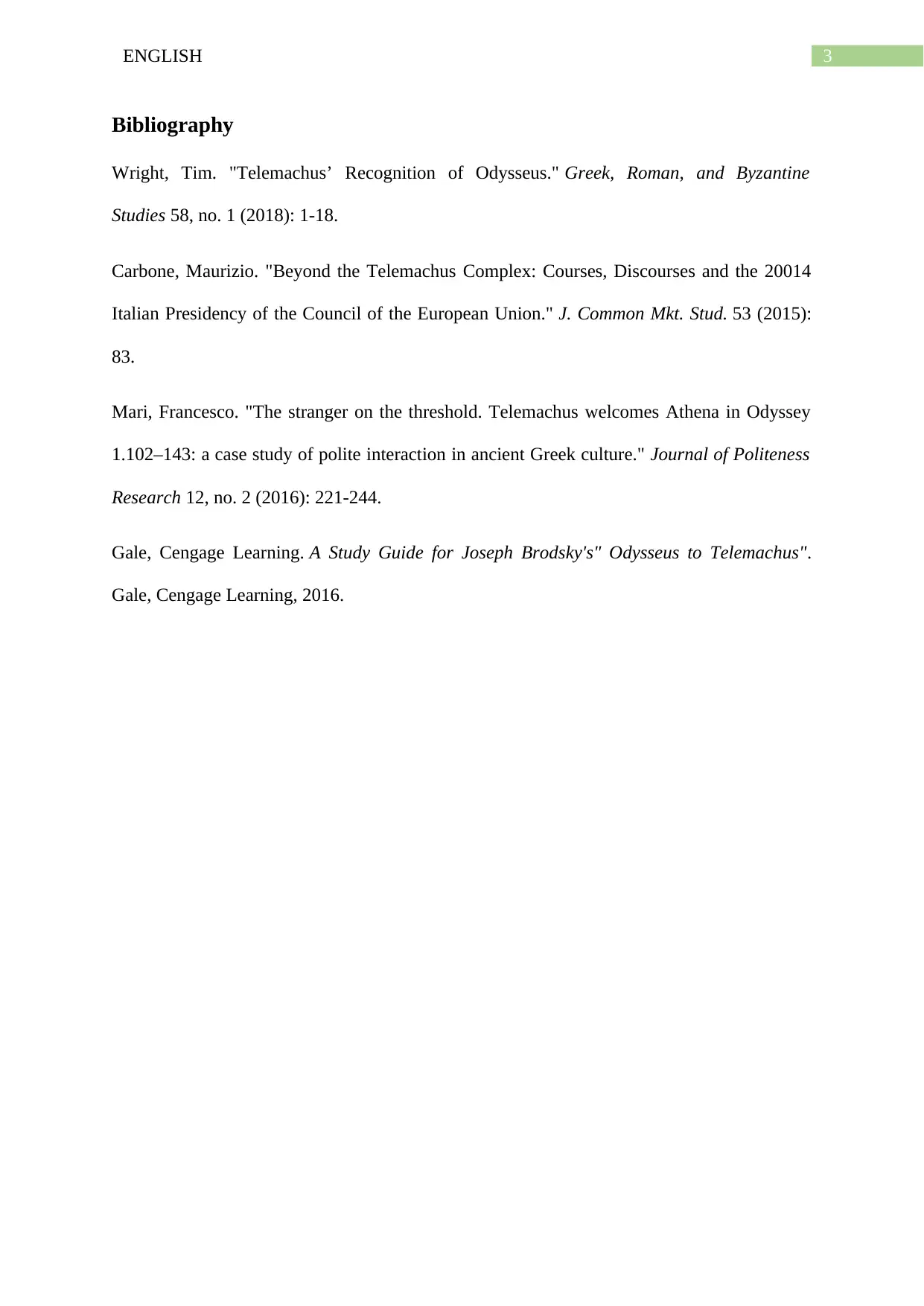Great Works of Literature, Fall 2019: Telemachus's Odyssey Analysis
VerifiedAdded on 2022/10/14
|4
|776
|411
Report
AI Summary
This report analyzes the psychosocial development of Telemachus in Homer's epic poem, the Odyssey. The author examines Telemachus's transformation from a fearful child to a courageous young man, highlighting the relevance of Erik Erikson's stages of development to his journey. The report explores the impact of conflicting emotions, the quest for justice, and the development of resilience, drawing parallels between Telemachus's experiences and modern youth. The analysis covers Telemachus's search for identity and purpose, emphasizing the relevance of his story to social psychological studies and humanistic psychology. The assignment fulfills the requirements of Great Works of Literature, Fall 2019 (Prof. Boselli), focusing on a specific point of view as a contemporary character, providing a succinct article for a contemporary newspaper or specialized magazine as a reviewer of the materials contained in the Odyssey. The author utilizes impactful speeches and situations, emphasizing the themes of fear, courage, vengeance, and solidarity in Telemachus's character arc. The report concludes by underscoring the enduring relevance of Telemachus's quest for meaning in life, and the use of relevant bibliography.
1 out of 4






![[object Object]](/_next/static/media/star-bottom.7253800d.svg)